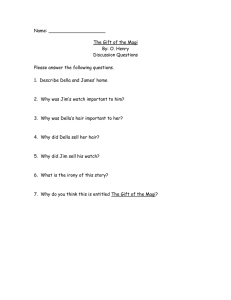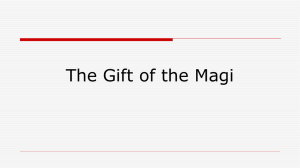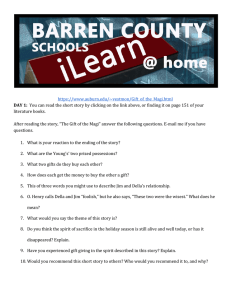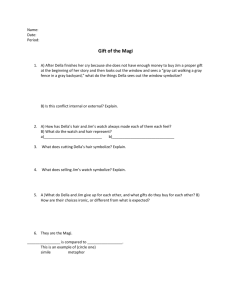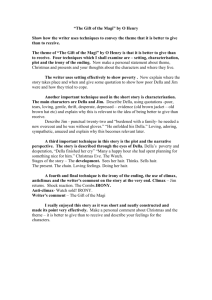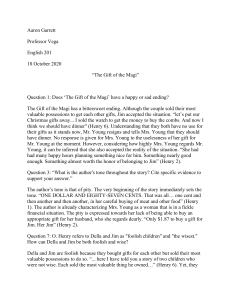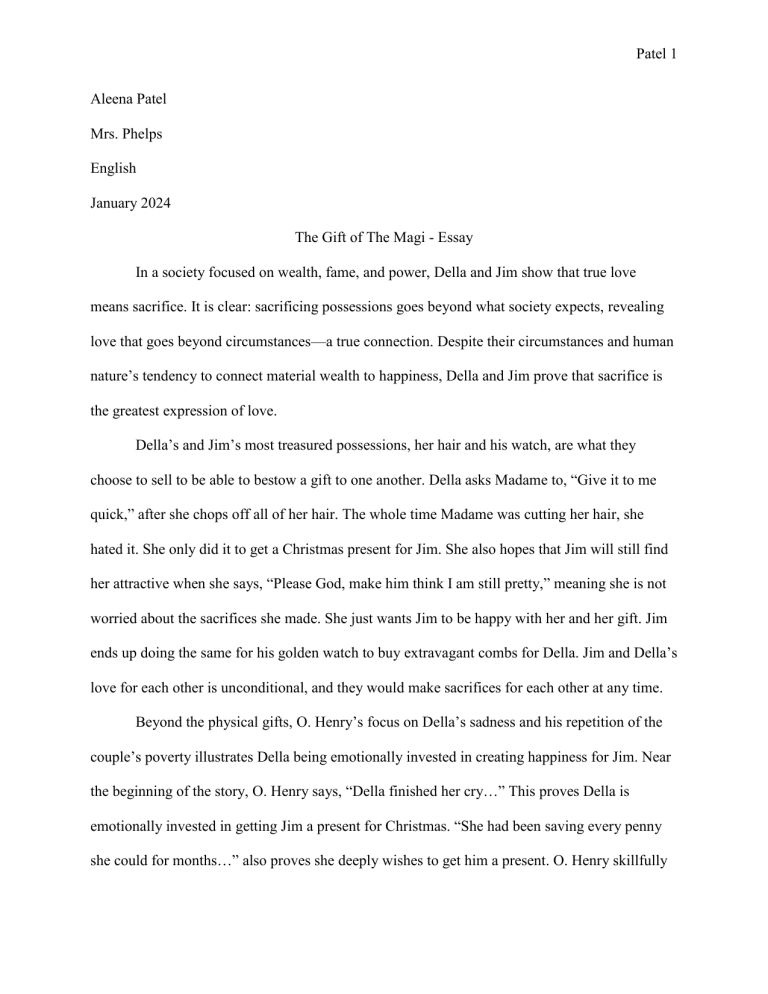
Patel 1 Aleena Patel Mrs. Phelps English January 2024 The Gift of The Magi - Essay In a society focused on wealth, fame, and power, Della and Jim show that true love means sacrifice. It is clear: sacrificing possessions goes beyond what society expects, revealing love that goes beyond circumstances—a true connection. Despite their circumstances and human nature’s tendency to connect material wealth to happiness, Della and Jim prove that sacrifice is the greatest expression of love. Della’s and Jim’s most treasured possessions, her hair and his watch, are what they choose to sell to be able to bestow a gift to one another. Della asks Madame to, “Give it to me quick,” after she chops off all of her hair. The whole time Madame was cutting her hair, she hated it. She only did it to get a Christmas present for Jim. She also hopes that Jim will still find her attractive when she says, “Please God, make him think I am still pretty,” meaning she is not worried about the sacrifices she made. She just wants Jim to be happy with her and her gift. Jim ends up doing the same for his golden watch to buy extravagant combs for Della. Jim and Della’s love for each other is unconditional, and they would make sacrifices for each other at any time. Beyond the physical gifts, O. Henry’s focus on Della’s sadness and his repetition of the couple’s poverty illustrates Della being emotionally invested in creating happiness for Jim. Near the beginning of the story, O. Henry says, “Della finished her cry…” This proves Della is emotionally invested in getting Jim a present for Christmas. “She had been saving every penny she could for months…” also proves she deeply wishes to get him a present. O. Henry skillfully Patel 2 presents Della's emotional investment in bringing joy to Jim through her sacrificial efforts and affectional expressions of love, emphasizing their shared happiness over material possessions O. Henry’s use of the allusion to the magi is a clear reference to meaningful sacrifices. He uses the allusion of the magi to symbolize people who make significant sacrifices. "The magi, as you know, were wise men—wonderfully wise men—who brought gifts to the Babe in the manger. They invented the art of giving Christmas presents. Being wise, their gifts were no doubt wise ones, possibly bearing the privilege of exchange in case of duplication." This quote links the characters' actions to the magi tradition, showing how their sacrifices in giving gifts during Christmas are wise and significant. "And here I have lamely related to you the uneventful chronicle of two foolish children in a flat who most unwisely sacrificed for each other the greatest treasures of their house." This sentence highlights how the characters, seen as foolish by society, made significant sacrifices for each other, giving up their most valuable possessions. O. Henry uses the story of the magi to show that even if others see the characters as foolish, their sacrifices for each other are wise and meaningful, reflecting the timeless idea of giving. Even with their poor lifestyle, Della and Jim redefine love by giving up precious things— her hair and his watch—to make each other happy. O. Henry emphasizes Della's emotions, tears, and savings, revealing their unconditional love. The allusion of the magi reinforces the wisdom in their sacrifices, challenging society. In the end, Della and Jim's story is significant, reminding people that a true relationship flourishes in meaningful acts of love and sacrifice.
